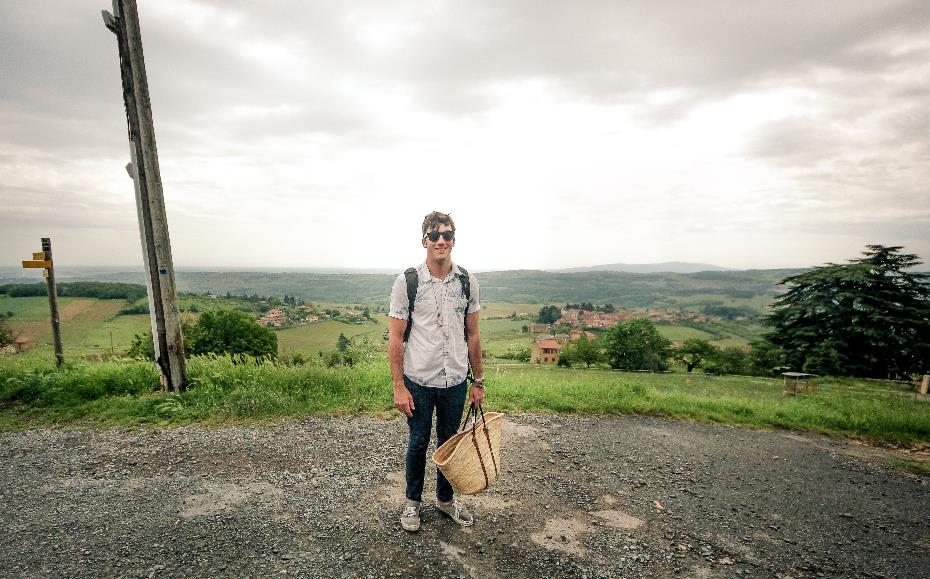The mission is the constant and Marcus will always be the inspiration

When COVID-19 hit the world, Marcus Mission was faced, as many programs were, with the challenge of how they were going to keep supporting people in the community. For a program that predominantly works with clients face-to-face, and with social distancing measures in place, the program had to pivot quickly to an online delivery. That, says Jon Morgan, had some unexpectedly great results.
“We had a fantastic uptake in people joining our Zoom workshops,” he says. “I think it was very beneficial, because it presented a more flexible way of learning and engaging; people who may not have had the time to dedicate to face-to-face training were more easily able to get online. We had more people attending workshops, and more people qualifying to be mentors. In what has been a very difficult time for most people, we’ve been able to have some great outcomes for the program, which is wonderful.”
Jon, together with his partner Simone, developed Marcus Mission back in 2018 in collaboration with WMQ. The program was named in honour of their nephew and godson, Marcus, who died by suicide at the age of 23.
Now two years on, Jon and Simone are as committed as ever to the cause, and the ongoing needs of the community is what strengthens their relationship with the program.
“We know that establishing strong referral networks and processes is really important for Marcus Mission right now,” says Jon. “The workshops are working really well, and we’re getting a great, consistent flow of men wanting to join the MENtorship program, but we also need to make sure that we’re reaching the young men in the community who need our help.”
This is where the community has an important role to play in a program like Marcus Mission.
“We all know it can be very hard to be vulnerable to others and ask for help,” says Jon. “It’s especially difficult for young men. So it requires a ‘gentle nudge’ from everyone around them – friends, family, community connections. And it’s making sure they know they have support all around them, which is why those community referral pathways and connections are so important.”
Simone adds, “t’s a whole-of-community approach. We need support networks to check up, check in, and make sure young men aren’t left behind. We need to foster, and reinforce, that sense of belonging. Because normalising the idea of seeking help lets people feel psychologically safe, and that’s when real change can start to happen.
“A good practice of reflection is also important for the program,” she adds. “We always want to be exploring different things, evaluating what works well and what doesn’t. We’re always looking at areas that we might be missing and doing our best to address that. And of course, sustainability is a big focus.”
There’s been a renewed spotlight on mental health support due to the effects of COVID-19, with both State and Federal governments announcing funding boosts in the pandemic’s wake. And it’s important, Jon says, to look at the bigger picture of mental health. “When addressing mental health, there’s the clinical aspect, which is important, but the other side of the coin is the social aspect.
“It’s the situational factors that are so prevalent,” he says. “Things like the stress and anxiety of losing a job, relationships breaking down, the loss or absence of social networks – that’s why it’s important to help equip young men with the tools they need to deal with these issues and show them that they aren’t alone.”
So what does giving back, give to Jon and Simone?
For Jon, it starts with family.
“I think about both of our late dads, who were both incredibly active in the community. My dad was involved in Rotary for 50 years, and I remember he always used to say that the two most important things in life are the love of family, and community service. It’s had a real impact on me, and so I’ve done my best to follow in his footsteps. When you give back, you get far more than you give. You’re serving something outside yourself, and that’s a privilege.”
Simone feels the same way. “I feel that I’ve been able to live a very blessed and fortunate life, which affords me the opportunity to give back to others, so I want to pay it forward. And that further fulfils my life.”
When it comes to Marcus Mission, the mission is the constant, and Marcus will always be the inspiration.
“Like any loss, the meaning is what is special,” says Jon.
“We’re still striving for the same things – but we have to keep evaluating the work we’re doing and evolving the program, making sure it’s reflecting what the needs are of young men,” says Simone. “We reflect back on Marcus and that we weren’t able to help him. The work of Marcus Mission is about what we can do to fill the gap that was there for Marcus. Being able to work with WMQ and reach out to other young men like him, that’s how we can make a difference now. It’s a big task, but it’s also so rewarding to see the impact we’re able to make.”
Jon agrees. “We’re not sitting still. It’s a work in progress and we have to keep assessing how we’re helping both directly and indirectly. We’ve still got a quite a way to go – but we’ve gotten off to a great start. “
To learn more or to get involved in Marcus Mission, visit our webpage.